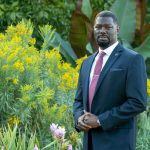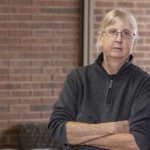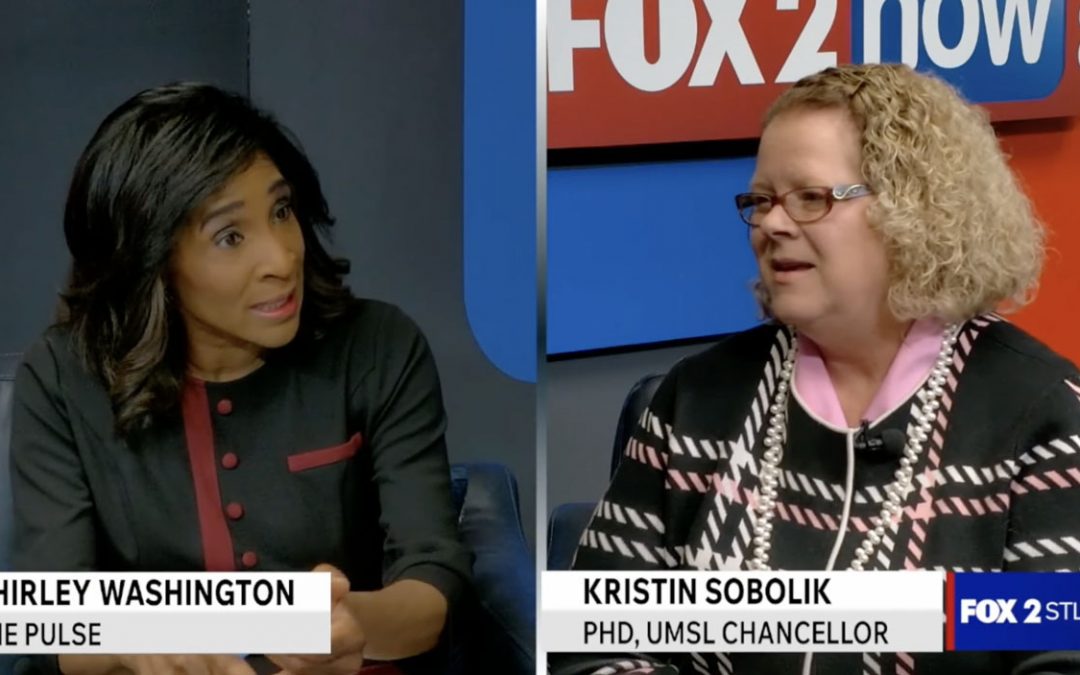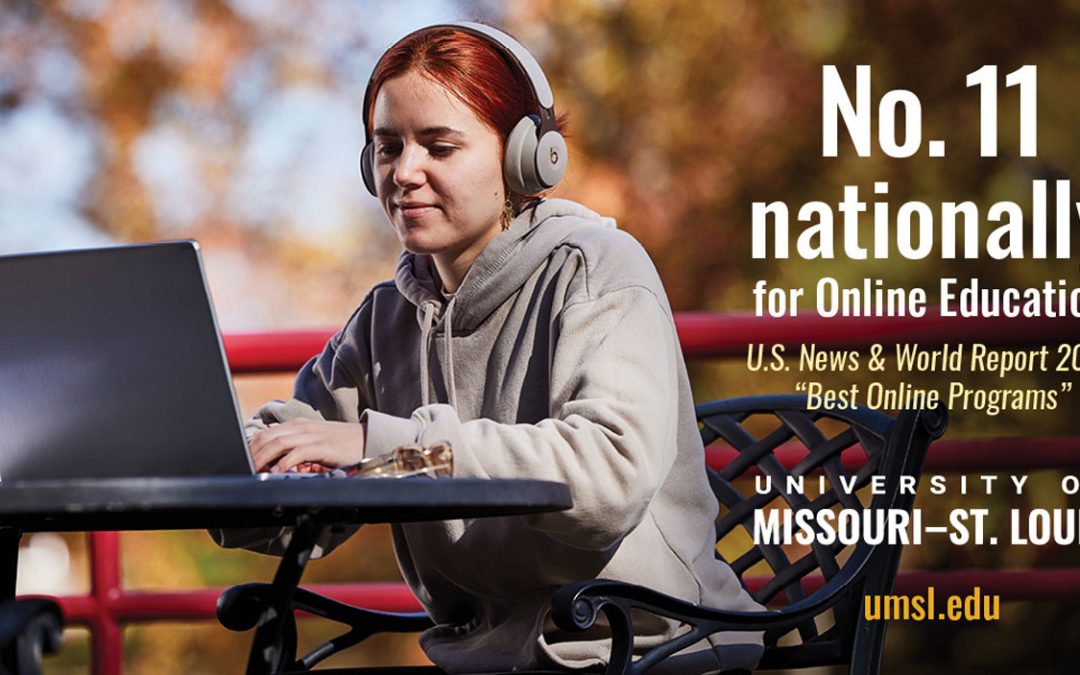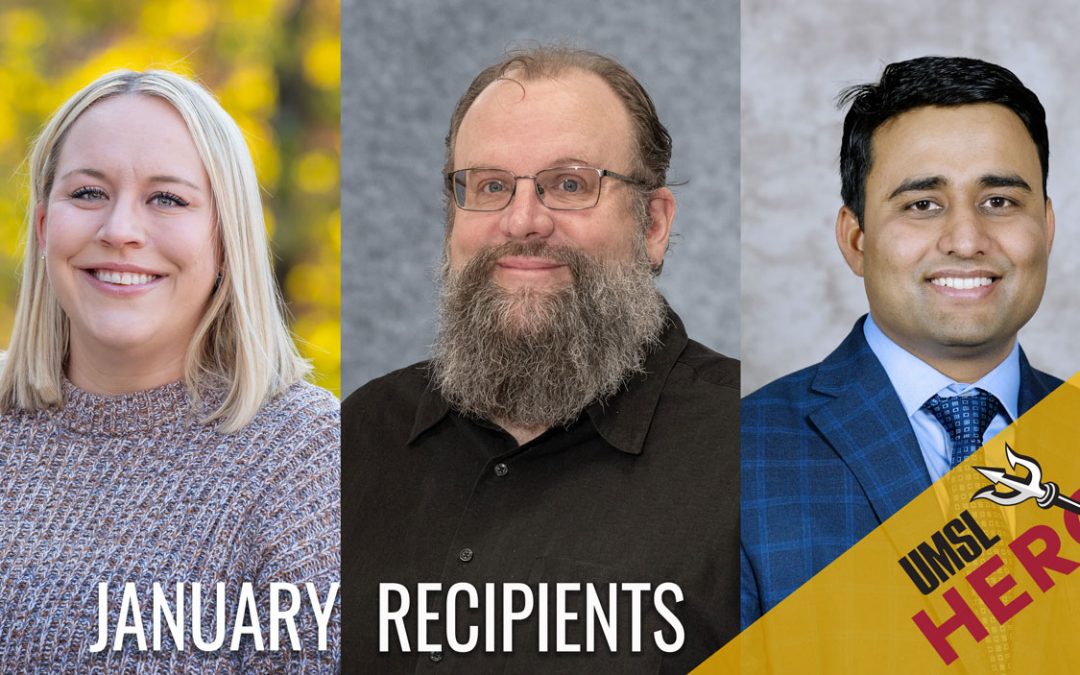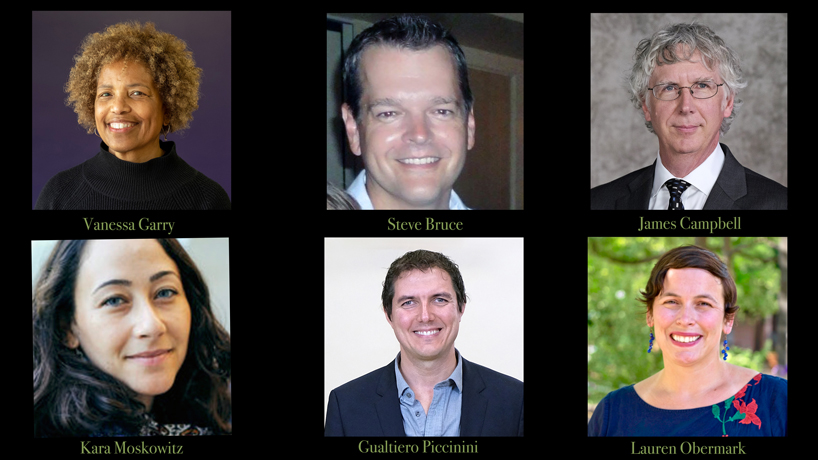
Vanessa Garry, Steve Bruce, James Campbell, Kara Moskowitz, Gualtiero Piccinini and Lauren Obermark were each granted sabbaticals during the 2022-23 academic year. (Photos by August Jennewein)
Six University of Missouri–St. Louis faculty members have been granted sabbaticals for the upcoming academic year.
Professor Steve Bruce from the Department of Psychological Sciences, Professor James Campbell from the Department of Supply Chain and Analytics, Associate Professor Vanessa Garry from the Department of Educator Preparation and Leadership, Associate Professor Kara Moskowitz from the Department of History, Associate Professor Lauren Obermark from the Department of English and Curators’ Distinguished Professor Gualtiero Piccinini in the Department of Philosophy will each spend one semester or one year pursuing research work through the university’s sabbatical leave program.
“This is an important part of higher education to allow our tenured faculty opportunities to re-engage their scholarship and teaching activities,” Provost and Interim Vice Chancellor for Academic Affairs Steven Berberich said. “We’ve been putting in a process to facilitate that across all colleges.”
Under University of Missouri System policies, tenured faculty members are eligible to apply for a sabbatical leave after six or more years of service.
Berberich’s office will begin accepting applications this fall for sabbaticals that will begin in the Fall 2023 semester.
Read more about how the faculty members who were granted sabbaticals this year plan to use their time away:
Steve Bruce, Department of Psychological Sciences: Bruce will continue expanding his international clinical research in Post-Traumatic Stress Disorder and trauma in central and southeast Asia, including Kyrgyzstan, Thailand and Cambodia. He hopes outcomes from the projects will lay the groundwork to scale and sustain mental health research and clinical care driven by in-country leaders and U.S. partners dedicated to changing the current trajectory of mental health equity in trauma-intense, resource-restricted regions of the world. Accurate and culturally sensitive measurement is vital to improve diagnostic accuracy and to develop and implement culturally-informed, trauma focused treatments. The absence of such treatment options and the lack of clinicians available to meet the mental health needs continue to drive a cycle of violence and trauma exposure. Bruce will be traveling and working closely with colleagues at the American University of Central Asia in Kyrgyzstan and the Royal University of Phnom Penh in Cambodia to develop culturally appropriate assessments of PTSD and trauma reactions.
James Campbell, Department of Supply Chain and Analytics: Campbell’s sabbatical research will be focused on optimizing the role of recharging stations for drone delivery, a subject that has not received as much attention as optimizing routing problems. He’s hoping his research can help extend the range of drones. Aerial drones provide new opportunities for improving deliveries of small amounts of products, due to their higher speeds, more direct travel, lower transportation costs and limited infrastructure requirements from vertical takeoff and landing capabilities – all of which has the potential to revolutionize distribution systems for low weight items around the world, including vaccines and other health-related deliveries in underserved countries. But drones carry the disadvantage of limited range compared to other transport modes. Recharging stations can be deployed to extend that range, through recharging or swapping batteries. Campbell wants to explore the utility of fixed recharging stations, mobile recharging stations and multiple recharges. He intends to develop strategic continuous approximation models of the total delivery system cost for various settings.
Vanessa Garry, Department of Educator Preparation and Leadership: Garry will be working on a book on the first Black teachers in the St. Louis Public Schools. Children of free Black men and women were not allowed to attend public schools in Missouri before the Civil War. The General Assembly lifted the ban in 1865, and Black parents enrolled their children in segregated public schools, where they were taught by white teachers. Black community leaders resisted the white power structure and fought for the hiring of Black educators to teach their children beginning in 1877. The first 11 Black teachers all immigrated to St. Louis, most from Ohio where they studied at Oberlin College, one of the first institutions to enroll Black students in the 1800s. Garry plans to conduct research for her book at Oberlin College as well as the University of Chicago and Northwestern University and locally at the State Historical Society of Missouri, the Missouri History Museum and the Missouri Historical Society Library and Research Center.
Kara Moskowitz, Department of History: Moskowitz will be conducting archival research for her second book, examining how externally-imposed development policies – based on neoliberal ideologies – reshaped Kenya during the late 20th century. The book will follow Moskowitz’s first book, “Seeing Like a Citizen: Decolonization, Development, and the Making of Kenya, 1945–1980.” Oil price hikes in the later part of the 20th century led to increased unemployment and rising food prices alongside soaring debt and inflation. Like other countries, Kenya undertook structural adjustment programming, including International Monetary Fund and World Bank loans tied to conditionalities, based on free-market, neoliberal ideologies. There were cuts in public spending, and the Kenyan shilling was devalued. As a result, by 1992, debt service was equal to 40 percent of export earnings. That resulted in a sharp rise in economic insecurity, which was further exacerbated by the withdrawal of state-sponsored social services. Kenya’s middle class and poor faced immense hardship. Moskowitz aims to examine how structural adjustment was applied in Kenya and how it was experienced by the people there.
Lauren Obermark, Department of English: Obermark will be continuing her research on public memory and social justice, including her theorization of the catalyst of memory as more than a single act at one moment but rather an ongoing, networked form of “resistant remembrance” that crosses space, time and mediums. The concept of the catalyst of memory is put forward in her first book, “Engaging Museums: Rhetorical Education and Social Justice.” It was a shorthand attempt to describe the link between the pursuit of social justice and memory. Obermark cites one example of that link as the toppling of confederate and colonialist monuments in the summer of 2020. She has been examining different efforts to remember Michael Brown since his death in 2014 and notes that one thing that unites them, at different levels and using different rhetorical appeals, is a link to the future, as a way to motivate ongoing action for racial justice. During her sabbatical, Obermark will travel to other places in the United States, including Minneapolis, to understand how resistant remembrance functions in other communities, both historically and more recently.
Gualtiero Piccinini, Department of Philosophy: Piccinini will spend the spring semester writing a book provisionally titled “Self-Measurement: How to Know Ourselves,” which he hopes will articulate and defend a novel account of how first-person data, such as data from first-person reports provided by human subjects, may be used to advance knowledge of the mind. Generating first-person data is analogous to generating data using other instruments of scientific measurement, but with first-person data, the human subject is both the measuring instrument and the measured object. Piccinini said that dual role for human subjects does not invalidate first-person data as long as proper methodological checks are in place. A self-measuring instrument must be calibrated and used correctly. The responsibility for doing so falls mostly on the researchers who sets up the experiment. Piccinini intends for his work to advance both the methodology of first-person data and a number of debates surrounding the reliability of introspection, the epistemic status of phenomenology and the possibility of self-knowledge.








